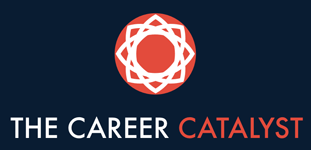
Should you disclose a disability when you apply for a job? How about after you’ve accepted a role? People often fear that disclosing such a thing will either get them disqualified or make the employer hold certain opinions about them. Some also feel they need to disclose this info or they’re being dishonest.
So let’s explore why that’s an option at all, and what the advantages and disadvantages are.
For context, the Americans with Disabilities Act (ADA) was passed in 1990, and prohibits discrimination against individuals with disabilities in school or the workplace, as well as in housing, transportation, and access to programs and services. This means, among other things, that employers are not allowed to discriminate against individual in the hiring process, and those that with more than 15 employees must provide “reasonable accommodations” for individuals who show proof of a disability. Of course, this is all pretty fuzzy, and employers can make the argument that certain accommodations pose “undue hardship” so they don’t have to agree to every request made by an individual.
But back to the topic! After the ADA passed, some employers began working to diversity their workforces by intentionally seeking underrepresented individuals in hiring. This means they took steps to ensure that job postings were published in a broader range of places, and they began to ask demographic questions at the front end of the hiring process. These questions allowed them to understand if their pool of applicants was diverse, or if they potentially needed to expand where they were posting the jobs. As a rule, the demographic survey you can fill out in a job application isn’t actually tied to your application, so the employer isn’t getting a document that says that Jane Smith is an African American woman with a disability. Instead, if Jane chooses to check all 3 of those boxes in the survey, the employer sees that an applicant is a woman, African American, and has a disability, not who that individual is.
If the employer is able to see that the pool of qualified candidates is diverse, they will usually move forward with the hiring process. Your resume simply moves forward, without those tags dangling off it.
If people don’t choose to disclose (demographic surveys are always optional), the employer may wind up closing the job posting and rethinking their posting strategy because they aren’t sure the job is reaching a wide enough audience. Or they may simply delay things, pushing the posting out through other avenues, until they feel they’ve done all they can. This, of course, delays things substantially, so the process will take longer.
But remember that this is always your choice, and there is a chance, though small, that anything you disclose will become public knowledge. Mental health issues, in particular, can feel especially sensitive and personal, and employers may not require you to disclose any information of this sort. In some cases, a condition of hire includes a medical examination, which may find a physical or mental health issue, but in these cases, the employer is now allowed to withdraw the offer unless the condition makes the individual unable to do the essential functions of the job without an accommodation and can’t be reasonably accommodated or the disability poses a real safety issue.
Regardless of whether you disclose during the hiring process, you may seek accommodations after you have accepted a job. This is usually a discussion you should have with HR, and you will need to show proof of your disability and offer some suggestions about what you need in order to do your job. According to the EEOC, these can include things like
- Making existing facilities used by employees readily accessible to and usable by persons with disabilities.
- Job restructuring, modifying work schedules, reassignment to a vacant position;
- Acquiring or modifying equipment or devices, adjusting or modifying examinations, training materials, or policies, and providing qualified readers or interpreters.
So think through what you need and how it has looked at previous workplaces. If you have questions, reach out to your local EEOC or ADA office. For information on mental health in particular, see this helpful fact sheet.



